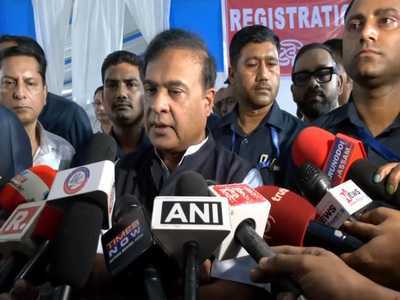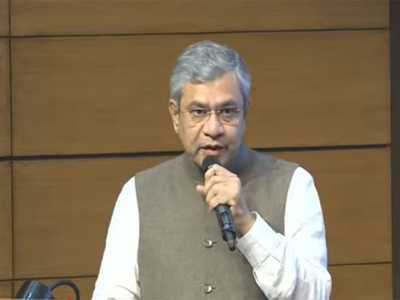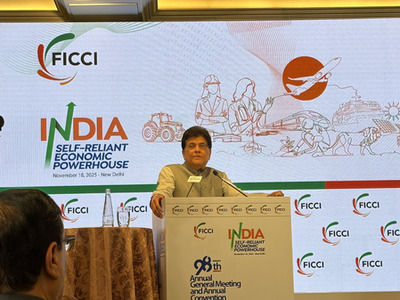The International Crimes Tribunal-Bangladesh (ICT-B) that awarded death sentence to deposed PM Sheikh Hasina cannot legally conduct her trial as it was instituted based on the International Crimes (Tribunals) Act of 1973.
The 1973 Act and amendments to it in 2008 were specifically intended to address crimes of genocide committed during the Liberation War of 1971.
Amendments to the scope of ICT-B 1973 made after August 5, 2024, were done through an ordinance. This is invalid ab initio as the duly appointed executive was not operative and Parliament had not approved it, according to a person familiar with ICT-B.
The Bangladesh President is not empowered to issue the ordinance (Art 93) as the dissolution of Parliament was not as per procedure, an expert on the Bangladesh Constitution pointed out. Also, ICT-B judges were unconstitutionally appointed.
On August 10, 2024, the chief justice and five other judges of the appellate division of Supreme Court were served "ultimatum" by a student mob surrounding the court and physically forced to resign. The present three judges in ICT-B were appointed in violation of the Constitution, according to the above quoted constitutional expert.
The chairman of ICT, Golam Mortuza Majumder, a retired district court judge, was appointed as a high court judge only six days before the announcement that the ICT will examine the cases. The second appointee Mohitul Haque Md Enam Chowdhury is a retired district and sessions judge and the third one is lawyer Shafiul Alam Mahmud, who like Majumdar, was appointed a few days ago as a high court judge.
Overall, 22 judges favoured by the radical Jamaat-e-Islami were made permanent within a year of service. None of the designated judges have experience in applying international legal principles, a gap that is significant in trials involving Crimes Against Humanity. It may be pointed out that Shafiul Alam Mahmud has links to BNP. The appointment of a political party member as an ICT judge raises questions of bias. Appointment of Md Tajul Islam as chief prosecutor of ICT raises serious questions of prosecutorial neutrality. He was earlier the chief lawyer for war criminals in trials before the International Crimes and appears to have been appointed by the Jamaat-e-Islami purely for retribution.
Appointment of Toby Cadman as special adviser to the chief prosecutor of the Bangladesh International Crimes Tribunal is also flawed. He was the lawyer for Jamaat in the trials conducted against them by the Awami League government. The state appointed defence lawyer Md Amir Hossain to represent Sheikh Hasina and former home minister Asaduzzaman Khan Kamal. Adv Hossain has no experience with International Criminal Law.
The 1973 Act and amendments to it in 2008 were specifically intended to address crimes of genocide committed during the Liberation War of 1971.
Amendments to the scope of ICT-B 1973 made after August 5, 2024, were done through an ordinance. This is invalid ab initio as the duly appointed executive was not operative and Parliament had not approved it, according to a person familiar with ICT-B.
The Bangladesh President is not empowered to issue the ordinance (Art 93) as the dissolution of Parliament was not as per procedure, an expert on the Bangladesh Constitution pointed out. Also, ICT-B judges were unconstitutionally appointed.
On August 10, 2024, the chief justice and five other judges of the appellate division of Supreme Court were served "ultimatum" by a student mob surrounding the court and physically forced to resign. The present three judges in ICT-B were appointed in violation of the Constitution, according to the above quoted constitutional expert.
The chairman of ICT, Golam Mortuza Majumder, a retired district court judge, was appointed as a high court judge only six days before the announcement that the ICT will examine the cases. The second appointee Mohitul Haque Md Enam Chowdhury is a retired district and sessions judge and the third one is lawyer Shafiul Alam Mahmud, who like Majumdar, was appointed a few days ago as a high court judge.
Overall, 22 judges favoured by the radical Jamaat-e-Islami were made permanent within a year of service. None of the designated judges have experience in applying international legal principles, a gap that is significant in trials involving Crimes Against Humanity. It may be pointed out that Shafiul Alam Mahmud has links to BNP. The appointment of a political party member as an ICT judge raises questions of bias. Appointment of Md Tajul Islam as chief prosecutor of ICT raises serious questions of prosecutorial neutrality. He was earlier the chief lawyer for war criminals in trials before the International Crimes and appears to have been appointed by the Jamaat-e-Islami purely for retribution.
Appointment of Toby Cadman as special adviser to the chief prosecutor of the Bangladesh International Crimes Tribunal is also flawed. He was the lawyer for Jamaat in the trials conducted against them by the Awami League government. The state appointed defence lawyer Md Amir Hossain to represent Sheikh Hasina and former home minister Asaduzzaman Khan Kamal. Adv Hossain has no experience with International Criminal Law.





